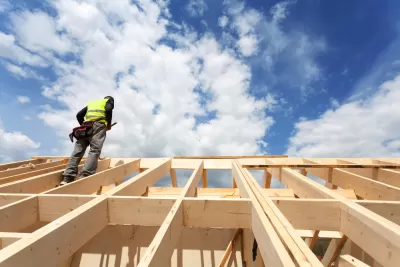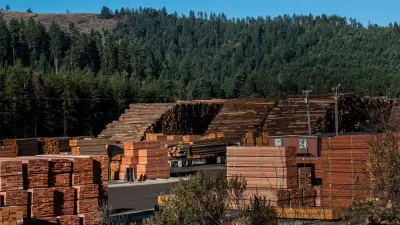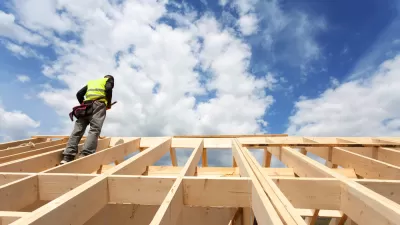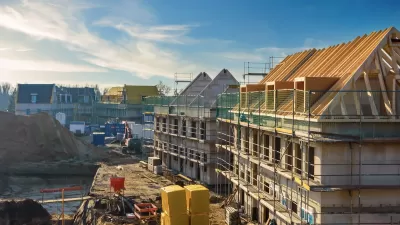Home buyers are likely to pay the cost of a recent decision by the U.S. Commerce Department.

Peter Baker and Ian Austen report: "The Trump administration announced on Monday that it would impose new tariffs on Canadian softwood lumber imports, escalating a longstanding conflict with America’s second-largest trading partner."
"The United States imported $5.7 billion in softwood lumber last year alone, mainly for residential home building," according to the article, which focuses mostly on the trade implications of the Commerce Department's decision to impose the tariff.
In a separate article, Chris Kirkham and Sarah Nassauer dig into the implications of the tariff for the U.S. home-building industry, which they say "has struggled with higher labor costs since the housing crash a decade ago." Here, the reporters explain how lumber fits into the total cost of new homes:
Based on analysis last year, a builder spends an average of $15,413 for the softwood lumber in a single-family home, or about 7% of the total construction cost of a home. Lumber cost increases so far this year have added an estimated $3,000 to the cost of building a typical home, according to the home builders’ association.
Lumber costs are already higher than they have been in a decade, according to the article.
Another article by Diana Olick calculates the expected cost U.S. home buyers will likely pay to cover the new tariff. Based on calculations by the National Association of Home Builders, homebuyers will increase Canadian lumber costs by 6.4 percent, or another $1,236 to the cost of an average single-family home.
FULL STORY: In New Trade Front, Trump Slaps Tariff on Canadian Lumber

Planetizen Federal Action Tracker
A weekly monitor of how Trump’s orders and actions are impacting planners and planning in America.

San Francisco's School District Spent $105M To Build Affordable Housing for Teachers — And That's Just the Beginning
SFUSD joins a growing list of school districts using their land holdings to address housing affordability challenges faced by their own employees.

The Tiny, Adorable $7,000 Car Turning Japan Onto EVs
The single seat Mibot charges from a regular plug as quickly as an iPad, and is about half the price of an average EV.

Seattle's Plan for Adopting Driverless Cars
Equity, safety, accessibility and affordability are front of mind as the city prepares for robotaxis and other autonomous vehicles.

As Trump Phases Out FEMA, Is It Time to Flee the Floodplains?
With less federal funding available for disaster relief efforts, the need to relocate at-risk communities is more urgent than ever.

With Protected Lanes, 460% More People Commute by Bike
For those needing more ammo, more data proving what we already knew is here.
Urban Design for Planners 1: Software Tools
This six-course series explores essential urban design concepts using open source software and equips planners with the tools they need to participate fully in the urban design process.
Planning for Universal Design
Learn the tools for implementing Universal Design in planning regulations.
Smith Gee Studio
City of Charlotte
City of Camden Redevelopment Agency
City of Astoria
Transportation Research & Education Center (TREC) at Portland State University
US High Speed Rail Association
City of Camden Redevelopment Agency
Municipality of Princeton (NJ)





























